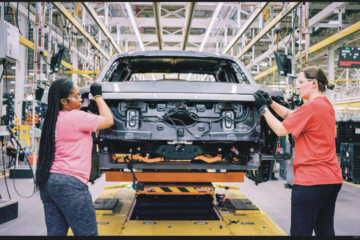Driving a vehicle comes with a cost, and one of the major expenses associated with driving is fuel. However, with some simple adjustments to your driving habits, you can significantly reduce your fuel consumption and save money at the pump. In this article, we will explore a range of fuel-efficient driving tips that can help you optimize your fuel economy and contribute to a greener environment.
What are Fuel-Efficient Driving Tips?
Fuel-efficient driving tips are a set of techniques and habits that, when adopted, can help maximize the mileage you get from every gallon of fuel. By implementing these tips, you can reduce unnecessary fuel consumption, decrease your carbon footprint, and ultimately save money.
Read: What are the Demands of the Striking Autoworkers?
Why are They Important?
Fuel-efficient driving tips are essential for several reasons. Firstly, they lead to cost savings for drivers. By improving your fuel efficiency, you can reduce the amount of money you spend on fuel and redirect those savings towards other important aspects of your life.
Secondly, fuel-efficient driving tips play a significant role in preserving the environment. Reducing fuel consumption means fewer greenhouse gas emissions, which helps combat climate change and reduce air pollution. By implementing these tips, you contribute to the overall well-being of our planet.
How Much Money Can You Save by Driving More Efficiently?
The amount of money you can save by driving more efficiently depends on various factors, such as the type of vehicle you drive, current fuel prices, and your driving habits. However, studies have shown that fuel-efficient driving can lead to savings ranging from 5% to 33% on fuel costs.
To put it into perspective, if you typically spend $100 a week on fuel, adopting fuel-efficient driving habits could save you anywhere between $5 and $33 each week. Over a year, that adds up to a substantial amount of money that can be better utilized for other purposes.
Tip 1: Accelerate Gently
The way you accelerate has a direct impact on fuel consumption. By avoiding rapid acceleration and instead opting for a smooth and gradual acceleration, you can minimize fuel usage. Aggressive acceleration consumes more fuel due to the increased energy demand to propel the vehicle forward.
Tip 2: Maintain a Steady Speed
Driving at a constant speed helps conserve fuel compared to constantly accelerating and braking. When driving on the highway, it’s advisable to use cruise control to maintain a consistent speed. This not only saves fuel but also enhances safety by helping you avoid unintentionally exceeding the speed limit.
Read: The Future of Autonomous Driving
Tip 3: Anticipate Traffic
Anticipating traffic flow can significantly contribute to fuel efficiency. By keeping your eyes on the road ahead and predicting stops and slowdowns, you can avoid sudden braking and acceleration, which can waste fuel. Maintaining a safe distance from the vehicle in front of you allows you to respond to traffic changes in a smooth and gradual manner.
Tip 4: Avoid High Speeds
As speed increases, fuel economy decreases. Driving at or below the speed limit not only ensures your safety but also helps you save fuel. Higher speeds create more aerodynamic drag, requiring your vehicle to work harder and consume more fuel. By driving within the specified limits, you can optimize fuel efficiency while still reaching your destination effectively.
Tip 5: Coast to Decelerate
When it’s time to slow down or come to a stop, try releasing the accelerator pedal and letting the car naturally coast to decelerate. This technique harnesses the vehicle’s momentum to reduce fuel consumption and lessen the wear and tear on your braking system. It’s an efficient way to maintain your fuel economy and extend the lifespan of your brakes.
Tip 6: Keep Your Tires Properly Inflated
Underinflated tires can significantly impact fuel economy. It’s crucial to regularly check your tire pressure and maintain it at the manufacturer’s recommended level. According to studies, underinflated tires can reduce fuel economy by up to 3%. By ensuring your tires are properly inflated, you can optimize fuel efficiency and improve the handling and safety of your vehicle.
Tip 7: Get Regular Oil Changes and Tune-ups
Proper vehicle maintenance is crucial for fuel efficiency. Regular oil changes and tune-ups based on your manufacturer’s recommendations keep your engine running in optimal condition. A well-maintained engine operates more efficiently, consuming less fuel and ultimately saving you money in the long run.
Tip 8: Use the Correct Fuel for Your Vehicle
Using the recommended type of fuel for your vehicle is vital to maintaining fuel efficiency and preventing potential engine damage. Check your vehicle’s manual or consult with the manufacturer to determine the appropriate type of fuel to use. Using an incorrect fuel type can lead to decreased fuel economy and potentially harm your engine’s performance.
Read: The Perfect Toyota for Your Next Adventure
Tip 9: Remove Unnecessary Weight from Your Vehicle
The weight your vehicle carries directly impacts fuel consumption. Take the time to declutter your vehicle and remove any unnecessary items that add weight, such as cargo boxes or roof racks. By reducing excess weight, you enhance your vehicle’s fuel efficiency and, consequently, save more fuel.
Tip 10: Combine Errands
A simple yet effective fuel-saving strategy is to combine multiple errands into one trip. Rather than making separate trips, plan your schedule ahead of time to accomplish various tasks on a single outing. Not only does this reduce the number of miles driven, but it also saves you fuel by minimizing idle time and unnecessary driving.
Conclusion
In conclusion, adopting fuel-efficient driving tips can bring about significant benefits. By implementing the techniques outlined above, such as gentle acceleration, steady speed maintenance, and anticipating traffic flow, you can maximize your vehicle’s fuel economy and reduce both your expenses and your environmental impact.
Read: The Top-Rated Cars for Safety: A Comprehensive Guide
Remember, every small adjustment to your driving habits can contribute to a greener future and put more money back in your pocket. So spread the word and share these fuel-efficient driving tips with your friends and family. Together, we can make a positive difference in fuel consumption and environmental conservation.
Featured Image Credit: express.co.uk



0 Comments